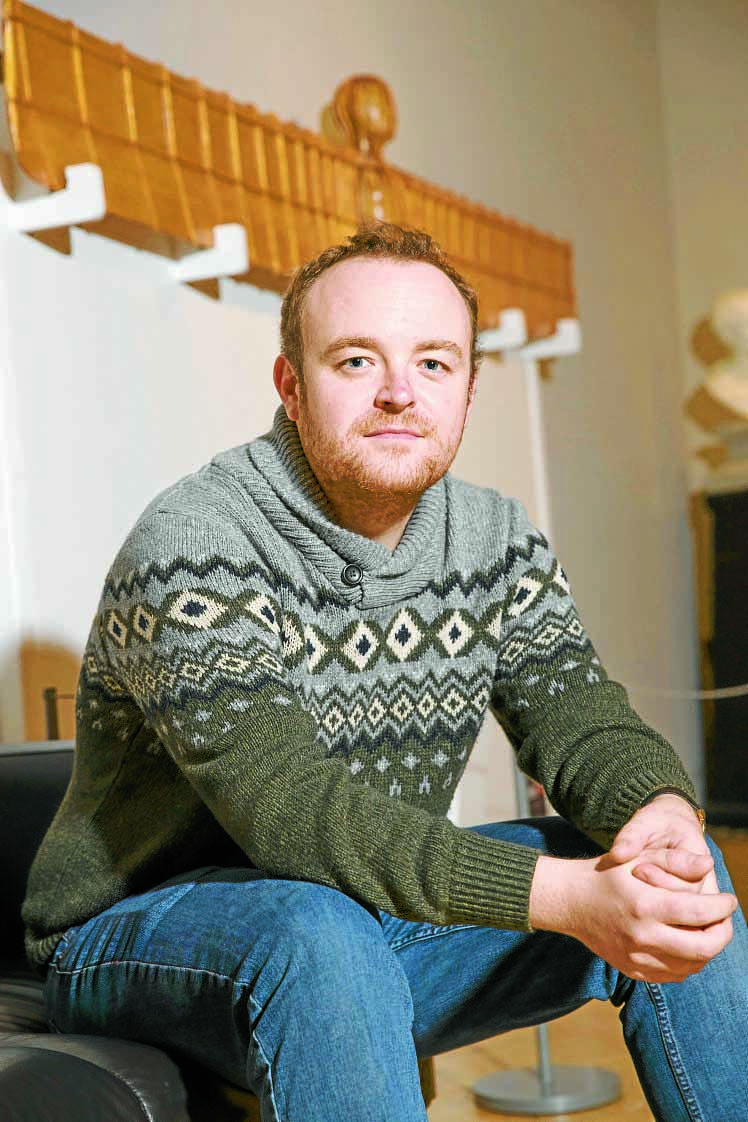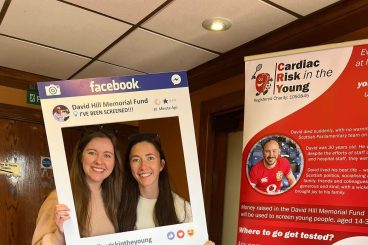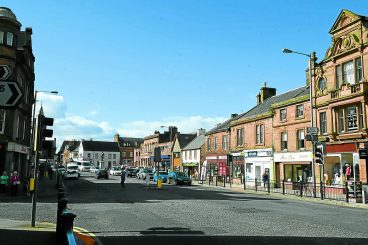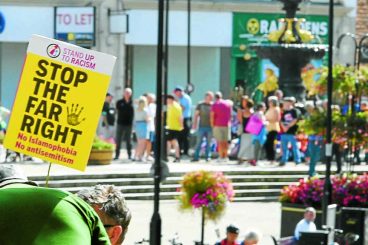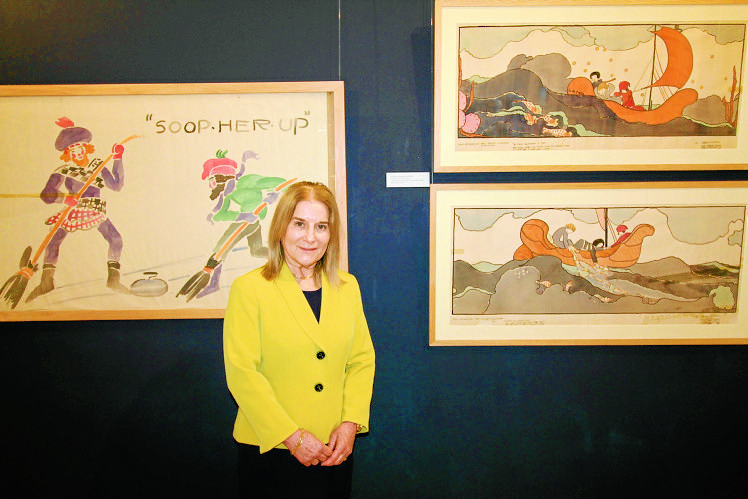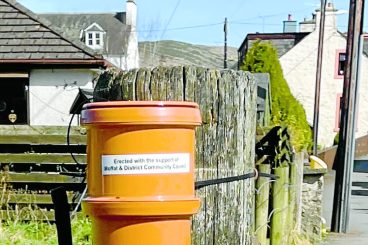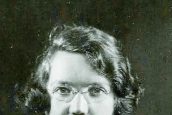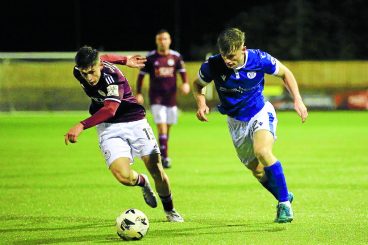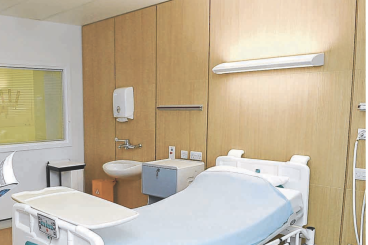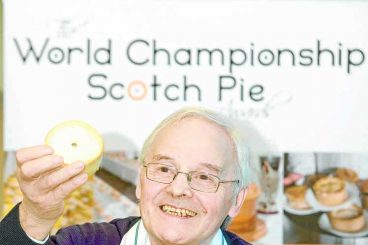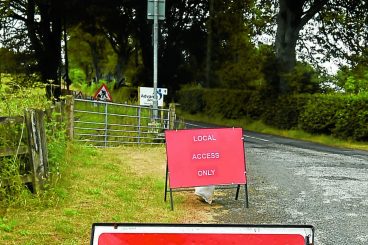Dr Andy Clark, of Newcastle University, and Dr Colin Atkinson, of the University of the West of Scotland, interviewed 11 officers from the Dumfries and Galloway and Strathclyde forces who were there in December 1988.
They also spoke to mountain rescue volunteers who searched Kielder Forest for debris from the plane.
And they have been sharing their findings at Syracuse University and with the Annandale Herald, ahead of publication.
Andy, pictured above, said: “We wanted to speak to those who were boots on the ground in the days following the disaster, those who responded as part of their day to day work. Their memories and stories had not been incorporated as they should be.
“I am really interested in how people reflect and how events like these are remembered.”
Colin added: “The voices of victims of terrorism, whether direct or indirect or communities, are often absent from academic research. This was a good opportunity to bring those voices back in to research.”
The participants treated the interviews with great seriousness and Colin said: “This was clearly a topic that was not water cooler chat. It became apparent really quickly that it was not a subject they had spoken about frequently.”
Getting the details right was very important to the interviewees, said the pair, adding: “They wanted to make sure it was as accurate as possible.
“Because they were police officers, they dealt with difficult and traumatic incidents on a daily basis so there was a desire to reflect on a job well done.”
Surprisingly, Colin stressed that the overriding emotion was not of trama: “It was a sense of that desire to do a good job for strangers in another part of the world, to make it as easy as possible for families that were grieving,” he said.
“There was local professional pride in how that job was done. That was the key element, the professional pride.
“It was a traumatic event but we were not necessarily speaking to traumatised people. They were people who, through no fault of their own, experienced a major disaster on their doorstep.
“That’s almost unfathomable. There was clearly a sense of that in their narrative, the disbelief at this.
“The interesting thing was the narrative of community and responsibility. The stoicism in their response.”
Agreeing, Andy added: “It was their patch and if anyone was going to do this job, it was them.
“It was difficult but they were tough.”
The culture was different in 1988 with little or no counselling on offer, and the officers relied heavily on family for support.
“The ability to go home and be with their families was major and gave them space and reparation,” said Andy. “There was a sense of guilt to go home to a normal home. The fact it was Christmas time too.”
Colin added: “Not speaking about it widely was the culture of the time.
“One was very keen to not say it was the biggest event of his policing career. Not to minimise it because Lockerbie clearly had a massive imprint on his life, but it was not necessarily the main thing, it was part of his story.
“He talked about other traumatic events he had been at that bore heavily on him as well.
“What was interesting was how they talked about the event. In a lot of cases it was about property not people, like finding an unsmashed bottle of wine, or finding passports.
“It was not just the recovery of remains and people, it was the emotional impact of the collection and cataloguing of property and possessions that was a difficult thing.”
The duo were recently at Syracuse for their Remembrance Week and to see the archive and meet families.
They returned with a message for Lockerbie: “There was a real sense of appreciation and debt of gratitude to the town and the people of Lockerbie,” said Andy.
That is feeding into their tentative project conclusions, as Colin explained: “We are interested in ideas of community, identity and progress. How you move on as a community and respect and remember what has happened in the past.
“The look back, act forward motto – to see that in Syracuse was really interesting as it’s a different culture with very different ways of remembering. There are still clear signs of injustice in the American context, that does not express itself in Lockerbie: this was something that happened here by chance.
“There’s a dialogue to be had between the two communities about how to remember these things going forward.”
As well as publishing their work, the pair are keen to do some public events.
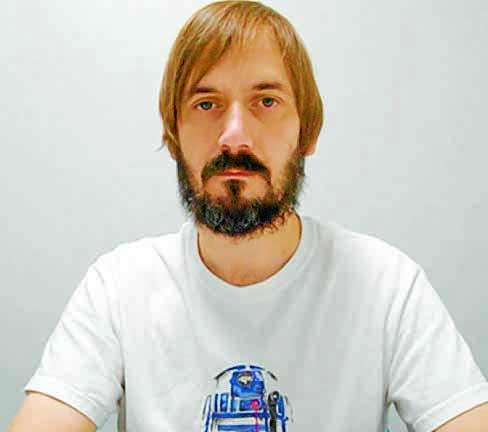
Colin added: “We don’t want to just publish it and forget about it.
“It’s the 35th anniversary next year and there were 35 Syracuse students so there’s a numerical serendipity around that.
“There have been developments in Lockerbie in terms of how the event will be memorialised in the future with a new site and if we could have any part in that going forward, that would be amazing, but we are really mindful of the fact we are outsiders and want to be respectful of the community.”
Meanwhile, Andy is hopeful they can secure more funding and continue the project in future in a community context.





